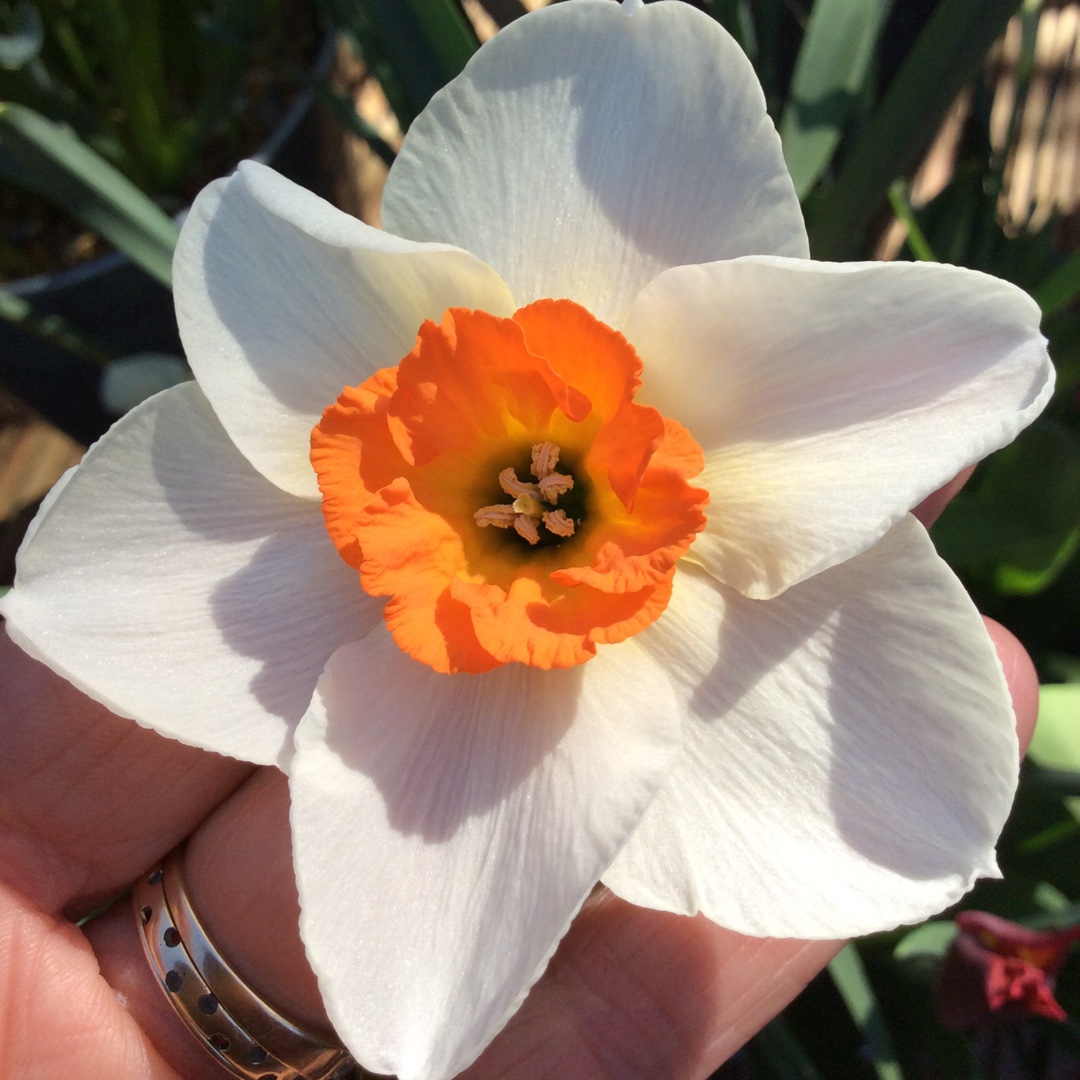
Narcissus 'Professor Einstein'
Daffodil 'Professor Einstein' (Large-cupped)
A harbinger of spring with many different types of these bright flowers, they come in dwarf varieties as well as the standard type and are easy to grow. They come in many shades of yellow and white, they all have outside petals and a cup in the middle often having the cup a different colour or shade to the petals. You can change the colour of daffodil by planting the bulb in a beetroot, this turns it pink, it does work, I tried it on a pale bulb and it became a pale shade of pink. They naturalise easily.'Albert Einstein' has white petals and a burnt orange flared trumpet
Contributed by @shelleyB
-
Full sun
-
Very little water
-
Full Frost Hardy: 5F (-15°C)
-
All soil conditions
Common name
Daffodil 'Professor Einstein' (Large-cupped)
Latin name
Narcissus 'Professor Einstein'
type
Bulb
family
Amaryllidaceae
ph
5.0 - 7.0 Acid - Neutral
Plant & bloom calendar
-
Best time to plant
-
When the plant will bloom
full grown dimensions
 0.50 M
0.40 M
0.50 M
0.40 M
Narcissus 'Professor Einstein'
A harbinger of spring with many different types of these bright flowers, they come in dwarf varieties as well as the standard type and are easy to grow. They come in many shades of yellow and white, they all have outside petals and a cup in the middle often having the cup a different colour or shade to the petals. You can change the colour of daffodil by planting the bulb in a beetroot, this turns it pink, it does work, I tried it on a pale bulb and it became a pale shade of pink. They naturalise easily.'Albert Einstein' has white petals and a burnt orange flared trumpet
Planting Outdoors
From Early Autumn TO Mid Autumn
Plant out bulbs in early autumn. They should have 3 or 4 inches of soil above the top of them.
Flowering Season
From Late Winter TO Early Spring
Almost all varieties flower in late winter or early spring. Each bulb produces one or more flower stems, each with one or more blooms.











